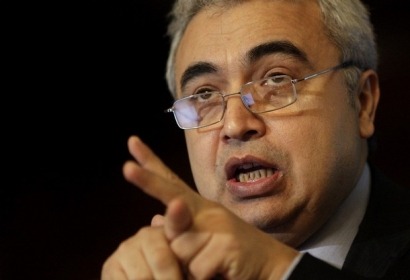
The information was made public today during the second day of the World Future Energy Summit in Abu Dhabi (UAE).
Fatih Birol noted that, in addition to aid for fossil fuels (coal, oil and gas), one of the major obstacles to the transition to a cleaner energy system is the financial and economic crisis that has led some leading European countries to reduce subsidies for renewable technologies.
The IEA Chief Economist recalled that between 2000 and 2010 the increase in the use of coal as an energy source was almost equal to the sum of the increase in diesel, natural gas, nuclear and renewables.
Moreover, the IEA’s World Energy Outlook shows that fuel subsidies are a very inefficient way of helping the poor: only 8% of the $409 billion spent on subsidising fossil fuels in 2010 reached 20% of the poorest people around the world.
More gas and renewables
The IEA’s forecast of energy demand over the next 25 years indicates that it will remain at the current level in developed countries, and that half of the increase in consumption will come from India and China. Although these countries have so far led the increase in coal demand, the Agency expects that renewable energies and natural gas will experience the greatest level of growth in these countries in forthcoming years.
"We are entering the golden age of natural gas", because the reserves of this fuel are highly diversified in the world and the technology to produce electricity with it is quite developed, said Birol.
Another factor in favour of gas is that after the Fukushima nuclear accident in Japan, many countries have reconsidered the future of this energy and are opting for natural gas to glug the gap before a transition to renewables.
Climate disaster
Fatih Birol regretted that the current financial crisis has diverted governments’ attention from the issue of climate change, and said that if current trends continue global average temperatures would rise by six degrees between 2010 and 2035.
This figure is well above the safe threshold, a maximum increase of two degrees, as established in the climate change summit in Copenhagen in 2010 – a goal that will be impossible to meet unless we take decisive action before 2015, Birol warned.
For additional information:

